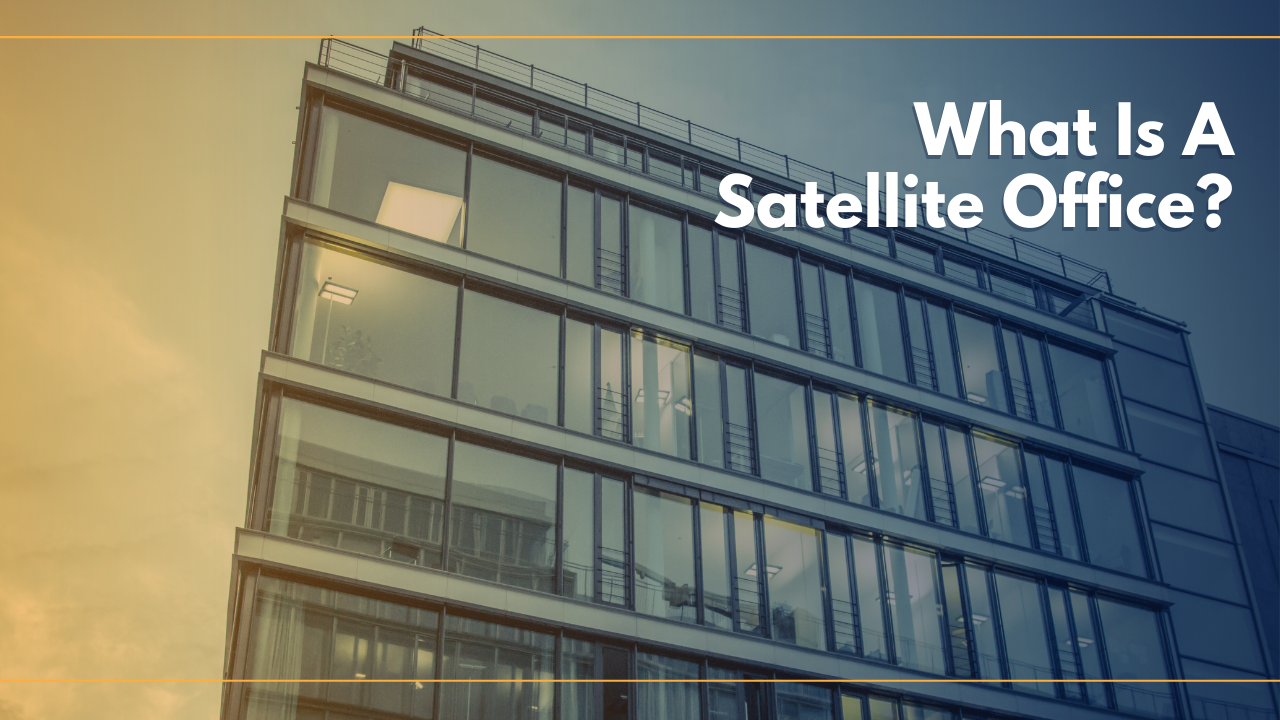- A satellite office is a smaller office, often called a branch office, that is physically separate from a company’s headquarters.
- With remote work on the rise, satellite offices can provide home-based workers with the right environment and tools to be productive.
- This guide explains the meaning of satellite offices, how to manage them, and the main reasons why organizations use them.
With remote work on the rise, organizations are starting to think about whether or not they should set up satellite offices to better support remote workers so that they have access to the right environment and tools to be productive.
Satellite offices are a great solution not only for organizations adopting a more hybrid work model, but also for growing organizations. If your business is growing and you are hoping to enter a new market, setting up a satellite office might be the ideal solution, especially if you are opening up a business in a new area with a small team.
But first, what is a satellite office?
Satellite Office Meaning:
A satellite office (or satellite location) is a smaller office that is physically separate from a company’s main office or headquarters.
Satellite offices are also known as branch offices.
Satellite offices are smaller than company headquarters and one company can have several satellite offices spread across a country or region. They also vary greatly in size; while some satellite offices may be home to only a few employees, others can be home to hundreds to thousands of employees.
It all depends on a company’s needs.
Satellite Office Locations
Where can a satellite office be located?
The answer is anywhere a company needs them.
You can have a satellite office in a city center, a residential area, or the suburbs. For example, if your company headquarters are in New York City, but you have various employees that live in New Jersey that oftentimes work remotely, then you could set up a satellite office in New Jersey.
Your business could also have a satellite office in California if it does business there, or even in Europe if you’re hoping to expand operations across the Atlantic.
Benefits of Satellite Offices
There are various use cases for satellite offices:
- For remote and flexible workers that don’t need to come into the main office every day.
- For teams and staff that are setting up company operations in a new market/location.
- For employees to use temporarily when they are working on long-term or short-term projects in a different location than where the company headquarters are located.
One of the main reasons organizations choose to set up satellite offices is to provide all employees with access to the right tools, resources, and environment for them to successfully carry out their work.
Below are some of the main benefits of satellite offices:
- They offer flexibility to employees, clients, vendors, and business partners.
- They provide organizations with access to new markets (local, regional, national, and global).
- They provide employees with access to a workplace environment that is conducive to productivity.
- They are cost-efficient.
- They are more efficient for customer support.
- They can help organizations with talent attraction and retention.
- They can help with employee engagement and company culture, especially for organizations with distributed teams.
How to Manage a Satellite Office
There are two ways organizations can set up a satellite office.
The first one is to follow the same process as setting up a main office or headquarters. The company enters into a long-term lease and they are responsible for fitting out and designing the satellite office.
This also means that the organization has to handle all office management and maintenance.
When setting up an owned satellite office location, organizations need to think about the following:
- Satellite office location
- Lease agreement
- Furniture
- Office amenities
- Tech infrastructure
- Utilities
- Building/office management and maintenance.
The other option organizations have is to work with flexible workspace operators that offer hub-and-spoke services.
In this case, an organization enters into an agreement with a flexible workspace operator that provides access to ready-to-use offices. The flexible workspace operator is in charge of maintenance and management.
The latter option tends to be popular as it makes the process of setting up a satellite office much easier and a lot quicker. The hub-and-spoke model provides organizations and its employees with immediate access to workspace that is ready to be used. It’s also less capital intensive and allows for more flexibility for a couple of reasons.
The first is that by using a third-party provider, organizations don’t have to sign a long-term lease. The second is that the hub-and-spoke model allows for organizations to grow or contract their satellite offices as needed.
Why Are Satellite Offices So Popular Now?
Due to the coronavirus pandemic, a lot of organizations were forced to allow employees to work remotely (specifically work from home).
While the shift to work from home initially delivered positive results, organizations and employees alike are realizing that working from a home environment is not ideal and sustainable for many in the long run:
- Workers feel isolated
- Company culture can suffer
- Some workers have a hard time being productive from home
- Some workers struggle with setting boundaries when working from home
- Workers don’t have access to all the tools and resources they might need (technology infrastructure, office supplies, printing, etc.)
However, several surveys have found that workers want to maintain some of the flexibility that they have experienced from working from home. The majority of workers, therefore, want to work remotely at least part-time; providing them with access to a satellite office that is closer to home can help organizations retain talent and ensure they are productive.
Another reason why organizations are increasingly turning to satellite offices at the moment is for safety and health purposes.
Physical distancing is still strongly encouraged, and in some countries required. Satellite offices can help organizations with their dedensificiation purposes and allow them to adhere to physical distancing protocols.
In other words, satellite offices can help organizations bring workers back into the office in a safe manner.



 Dr. Gleb Tsipursky – The Office Whisperer
Dr. Gleb Tsipursky – The Office Whisperer Nirit Cohen – WorkFutures
Nirit Cohen – WorkFutures Angela Howard – Culture Expert
Angela Howard – Culture Expert Drew Jones – Design & Innovation
Drew Jones – Design & Innovation Jonathan Price – CRE & Flex Expert
Jonathan Price – CRE & Flex Expert














